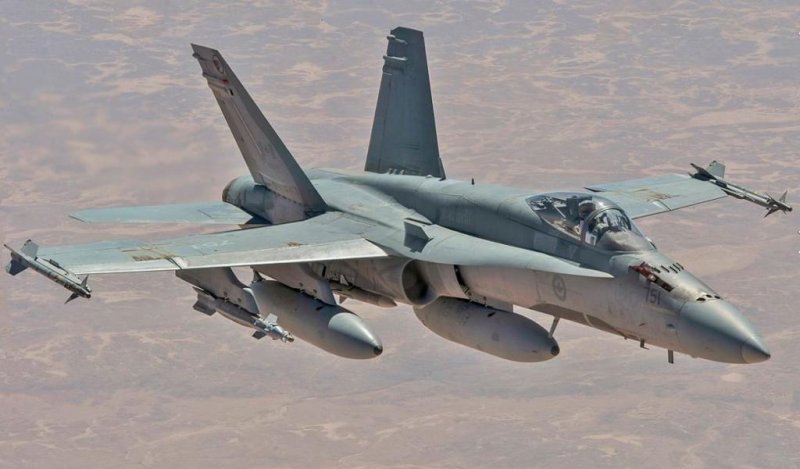Canadian CF-18 fighters were involved in a successful bomber intercept exercise on May 23, the North American Aerospace Defense Command, or NORAD, announced. Photo by SSgt. Perry Aston/U.S. Air Force/UPI
May 29 (UPI) -- NORAD, the North American Aerospace Defense Command, on Wednesday announced a successful simulated intercept over Canadian airspace.
Royal Canadian Air Force CF-18 fighter planes on May 22 worked with B-52 long-range bombers of the U.S. Air Force to demonstrate the current defense capabilities of NORAD, the U.S.-Canadian force charged with the aerospace warning, aerospace control and maritime warning for North America.
The B-52s were simulated enemies in the exercise, as they crossed into airspace over Alberta province, part of the Canadian Air Defense Identification Zone.
"This offered an opportunity to practice a critical skill," NORAD Cmdr. Terrence O'Shaughnessy said in a tweet on Wednesday about the exercise. "Working with other combatant commands enhances our efforts to function as a global force with a unified purpose: to deter, detect and, if necessary, defeat any threat to North America."
The exercise came two days after F-22 fighter planes of the U.S. Air Force intercepted six Russian military planes off the coast of Alaska. The Russian aircraft remained in international airspace and there were no further incidents. Two F-22 planes intercepted two Tupolev Tu-95 bombers.
A day later, on May 22, two other F-22s intercepted two more Tu-95s and two Su-35 fighter jets. The U.S. planes chased the Russian planes until they left the Alaskan Air Defense Identification Zone. A U.S. E-3 spy plane was also in the area, monitoring the airspace.
U.S. officials said the Russian planes did not enter U.S. sovereign airspace, which extends vertically above U.S. territorial waters. Aircraft are allowed to fly in the ADIZ without authorization, but will be intercepted and treated as enemy aircraft. NORAD said that U.S. forces have intercepted an average of six or seven Russian planes in the Alaska zone every year since 2007.















